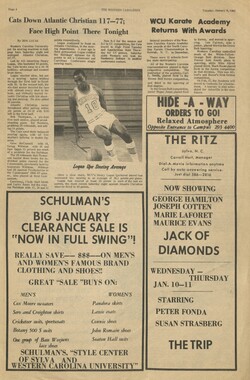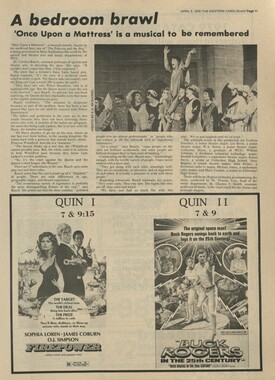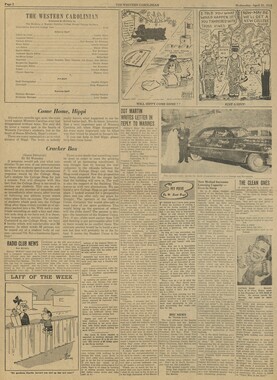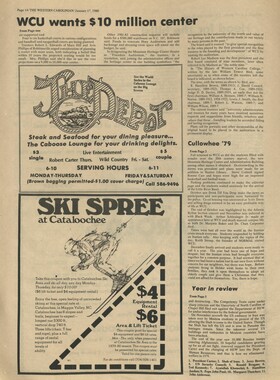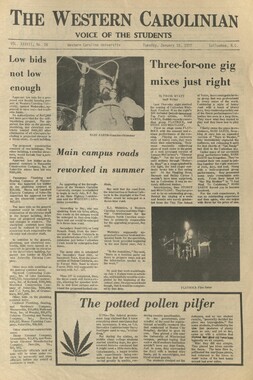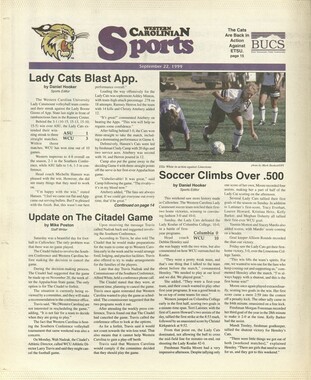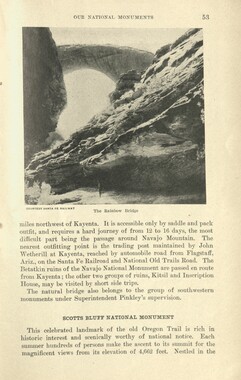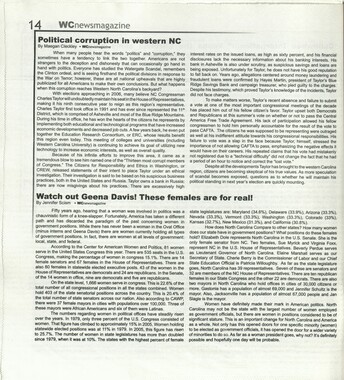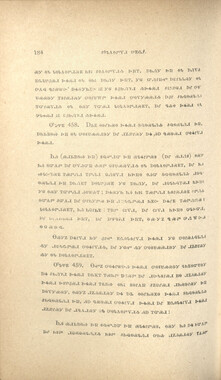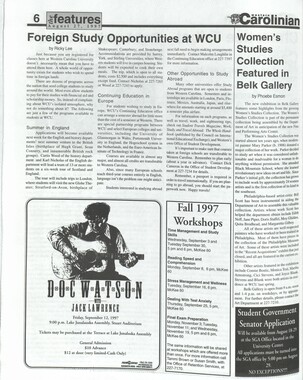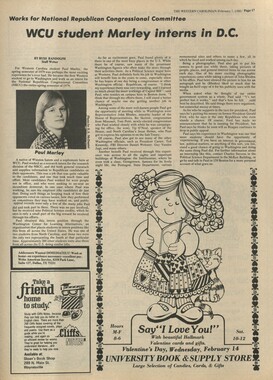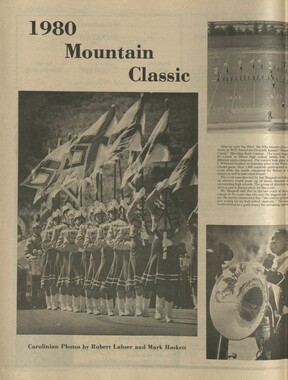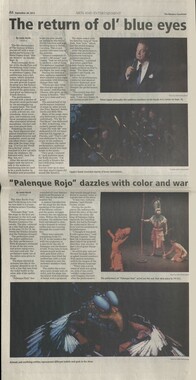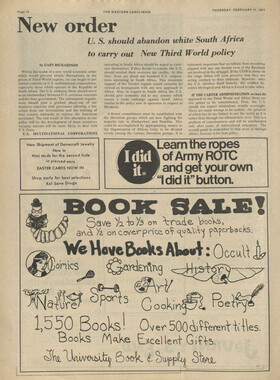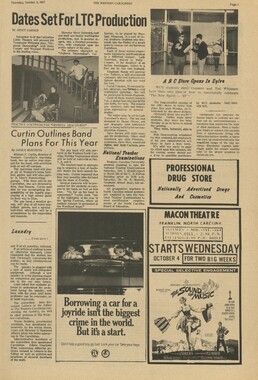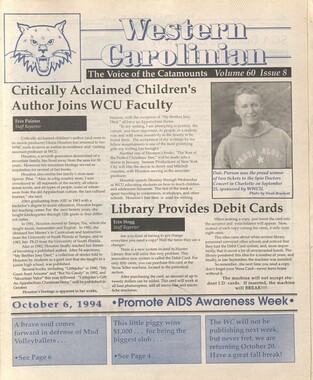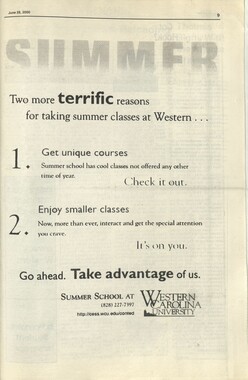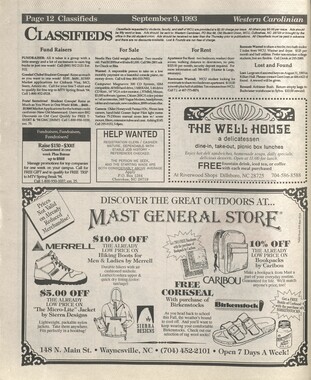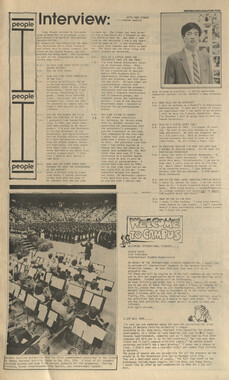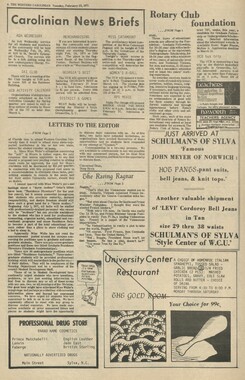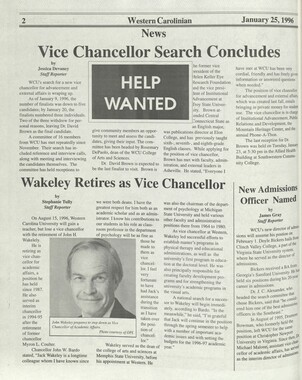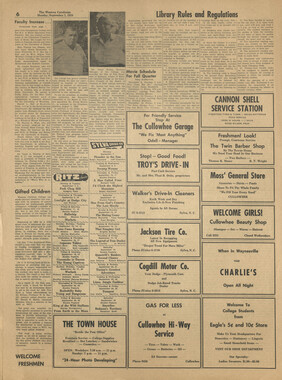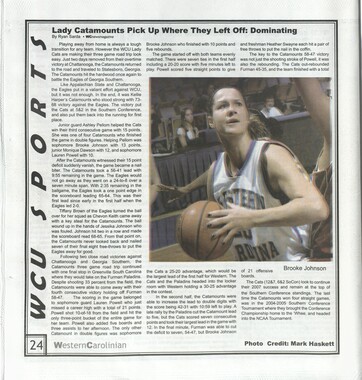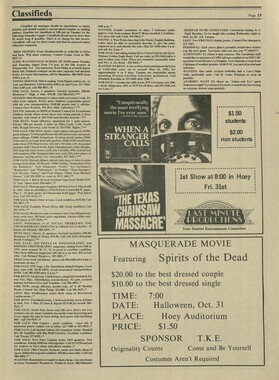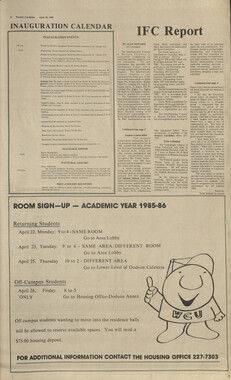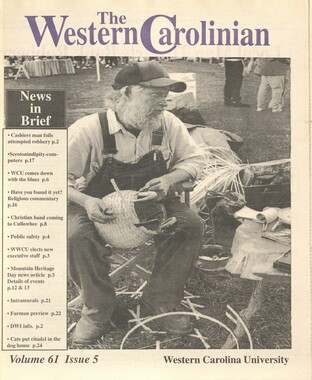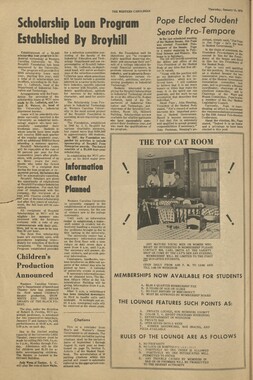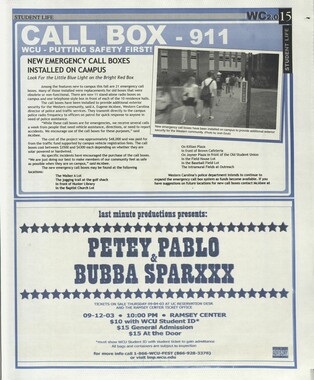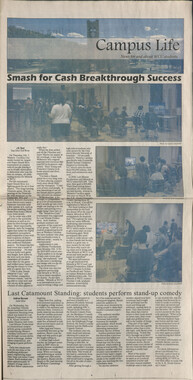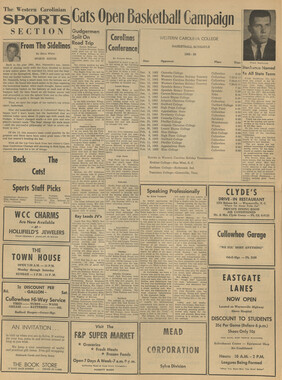Western Carolina University (21)
View all
- Canton Champion Fibre Company (2308)
- Cherokee Traditions (291)
- Civil War in Southern Appalachia (165)
- Craft Revival (1942)
- George Masa Collection (137)
- Great Smoky Mountains - A Park for America (3080)
- Highlights from Western Carolina University (422)
- Horace Kephart (973)
- Journeys Through Jackson (159)
- LGBTQIA+ Archive of Jackson County (89)
- Oral Histories of Western North Carolina (318)
- Picturing Appalachia (6617)
- Stories of Mountain Folk (413)
- Travel Western North Carolina (153)
- Western Carolina University Fine Art Museum Vitreograph Collection (129)
- Western Carolina University Herbarium (92)
- Western Carolina University: Making Memories (738)
- Western Carolina University Publications (2491)
- Western Carolina University Restricted Electronic Theses and Dissertations (146)
- Western North Carolina Regional Maps (71)
- World War II in Southern Appalachia (131)
University of North Carolina Asheville (6)
View all
- Allanstand Cottage Industries (62)
- Appalachian National Park Association (53)
- Bennett, Kelly, 1890-1974 (1463)
- Berry, Walter (76)
- Brasstown Carvers (40)
- Carver, George Washington, 1864?-1943 (26)
- Cathey, Joseph, 1803-1874 (1)
- Champion Fibre Company (233)
- Champion Paper and Fibre Company (297)
- Cherokee Indian Fair Association (16)
- Cherokee Language Program (22)
- Crowe, Amanda (40)
- Edmonston, Thomas Benton, 1842-1907 (7)
- Ensley, A. L. (Abraham Lincoln), 1865-1948 (275)
- Fromer, Irving Rhodes, 1913-1994 (70)
- George Butz (BFS 1907) (46)
- Goodrich, Frances Louisa (120)
- Grant, George Alexander, 1891-1964 (96)
- Heard, Marian Gladys (60)
- Kephart, Calvin, 1883-1969 (15)
- Kephart, Horace, 1862-1931 (313)
- Kephart, Laura, 1862-1954 (67)
- Laney, Gideon Thomas, 1889-1976 (439)
- Masa, George, 1881-1933 (61)
- McElhinney, William Julian, 1896-1953 (44)
- Niggli, Josephina, 1910-1983 (10)
- North Carolina Park Commission (105)
- Osborne, Kezia Stradley (9)
- Owens, Samuel Robert, 1918-1995 (11)
- Penland Weavers and Potters (36)
- Roberts, Vivienne (15)
- Roth, Albert, 1890-1974 (142)
- Schenck, Carl Alwin, 1868-1955 (1)
- Sherrill's Photography Studio (2565)
- Southern Highland Handicraft Guild (127)
- Southern Highlanders, Inc. (71)
- Stalcup, Jesse Bryson (46)
- Stearns, I. K. (213)
- Thompson, James Edward, 1880-1976 (226)
- United States. Indian Arts and Crafts Board (130)
- USFS (683)
- Vance, Zebulon Baird, 1830-1894 (1)
- Weaver, Zebulon, 1872-1948 (58)
- Western Carolina College (230)
- Western Carolina Teachers College (282)
- Western Carolina University (2008)
- Western Carolina University. Mountain Heritage Center (18)
- Whitman, Walt, 1819-1892 (10)
- Wilburn, Hiram Coleman, 1880-1967 (73)
- Williams, Isadora (3)
- Cain, Doreyl Ammons (0)
- Crittenden, Lorraine (0)
- Rhodes, Judy (0)
- Smith, Edward Clark (0)
- Appalachian Region, Southern (3032)
- Asheville (N.C.) (1945)
- Avery County (N.C.) (26)
- Blount County (Tenn.) (195)
- Buncombe County (N.C.) (1680)
- Cherokee County (N.C.) (283)
- Clay County (N.C.) (556)
- Graham County (N.C.) (238)
- Great Smoky Mountains National Park (N.C. and Tenn.) (525)
- Haywood County (N.C.) (3573)
- Henderson County (N.C.) (70)
- Jackson County (N.C.) (4925)
- Knox County (Tenn.) (35)
- Knoxville (Tenn.) (13)
- Lake Santeetlah (N.C.) (10)
- Macon County (N.C.) (421)
- Madison County (N.C.) (216)
- McDowell County (N.C.) (39)
- Mitchell County (N.C.) (135)
- Polk County (N.C.) (35)
- Qualla Boundary (982)
- Rutherford County (N.C.) (78)
- Swain County (N.C.) (2185)
- Transylvania County (N.C.) (270)
- Watauga County (N.C.) (12)
- Waynesville (N.C.) (86)
- Yancey County (N.C.) (72)
- Aerial Photographs (3)
- Aerial Views (60)
- Albums (books) (4)
- Articles (1)
- Artifacts (object Genre) (228)
- Bibliographies (1)
- Biography (general Genre) (2)
- Cards (information Artifacts) (38)
- Clippings (information Artifacts) (192)
- Copybooks (instructional Materials) (3)
- Crafts (art Genres) (622)
- Depictions (visual Works) (21)
- Design Drawings (1)
- Digital Moving Image Formats (2)
- Drawings (visual Works) (185)
- Envelopes (101)
- Exhibitions (events) (1)
- Facsimiles (reproductions) (1)
- Fiction (general Genre) (4)
- Financial Records (12)
- Fliers (printed Matter) (67)
- Glass Plate Negatives (381)
- Guidebooks (2)
- Internegatives (10)
- Interviews (823)
- Land Surveys (102)
- Letters (correspondence) (1045)
- Manuscripts (documents) (618)
- Maps (documents) (177)
- Memorandums (25)
- Minutes (administrative Records) (59)
- Negatives (photographs) (6090)
- Newsletters (1290)
- Newspapers (2)
- Notebooks (8)
- Occupation Currency (1)
- Paintings (visual Works) (1)
- Pen And Ink Drawings (1)
- Periodicals (194)
- Personal Narratives (10)
- Photographs (12977)
- Plans (maps) (1)
- Poetry (6)
- Portraits (4568)
- Postcards (329)
- Programs (documents) (181)
- Publications (documents) (2444)
- Questionnaires (65)
- Relief Prints (26)
- Sayings (literary Genre) (1)
- Scrapbooks (282)
- Sheet Music (2)
- Slides (photographs) (402)
- Songs (musical Compositions) (2)
- Sound Recordings (802)
- Specimens (92)
- Speeches (documents) (18)
- Tintypes (photographs) (8)
- Transcripts (329)
- Text Messages (0)
- A.L. Ensley Collection (275)
- Appalachian Industrial School Records (7)
- Appalachian National Park Association Records (336)
- Axley-Meroney Collection (2)
- Bayard Wootten Photograph Collection (20)
- Bethel Rural Community Organization Collection (7)
- Blumer Collection (5)
- C.W. Slagle Collection (20)
- Canton Area Historical Museum (2110)
- Carlos C. Campbell Collection (462)
- Cataloochee History Project (64)
- Cherokee Studies Collection (4)
- Daisy Dame Photograph Album (5)
- Daniel Boone VI Collection (1)
- Doris Ulmann Photograph Collection (112)
- Elizabeth H. Lasley Collection (1)
- Elizabeth Woolworth Szold Fleharty Collection (4)
- Frank Fry Collection (95)
- George Masa Collection (173)
- Gideon Laney Collection (452)
- Hazel Scarborough Collection (2)
- Hiram C. Wilburn Papers (28)
- Historic Photographs Collection (236)
- Horace Kephart Collection (861)
- Humbard Collection (33)
- Hunter and Weaver Families Collection (1)
- I. D. Blumenthal Collection (4)
- Isadora Williams Collection (4)
- Jesse Bryson Stalcup Collection (47)
- Jim Thompson Collection (224)
- John B. Battle Collection (7)
- John C. Campbell Folk School Records (80)
- John Parris Collection (6)
- Judaculla Rock project (2)
- Kelly Bennett Collection (1482)
- Love Family Papers (11)
- Major Wiley Parris Civil War Letters (3)
- Map Collection (12)
- McFee-Misemer Civil War Letters (34)
- Mountain Heritage Center Collection (4)
- Norburn - Robertson - Thomson Families Collection (44)
- Pauline Hood Collection (7)
- Pre-Guild Collection (2)
- Qualla Arts and Crafts Mutual Collection (12)
- R.A. Romanes Collection (681)
- Rosser H. Taylor Collection (1)
- Samuel Robert Owens Collection (94)
- Sara Madison Collection (144)
- Sherrill Studio Photo Collection (2558)
- Smoky Mountains Hiking Club Collection (616)
- Stories of Mountain Folk - Radio Programs (374)
- The Reporter, Western Carolina University (510)
- Venoy and Elizabeth Reed Collection (16)
- WCU Gender and Sexuality Oral History Project (36)
- WCU Mountain Heritage Center Oral Histories (25)
- WCU Oral History Collection - Mountain People, Mountain Lives (71)
- WCU Students Newspapers Collection (1923)
- Western North Carolina Tomorrow Black Oral History Project (69)
- William Williams Stringfield Collection (2)
- Zebulon Weaver Collection (109)
- African Americans (390)
- Appalachian Trail (35)
- Artisans (521)
- Cherokee art (84)
- Cherokee artists -- North Carolina (10)
- Cherokee language (21)
- Cherokee pottery (101)
- Cherokee women (208)
- Church buildings (190)
- Civilian Conservation Corps (U.S.) (111)
- College student newspapers and periodicals (2012)
- Dams (108)
- Dance (1023)
- Education (222)
- Floods (63)
- Folk music (1015)
- Forced removal, 1813-1903 (2)
- Forest conservation (220)
- Forests and forestry (1198)
- Gender nonconformity (4)
- Great Smoky Mountains National Park (N.C. and Tenn.) (181)
- Hunting (47)
- Landscape photography (25)
- Logging (122)
- Maps (83)
- Mines and mineral resources (9)
- North Carolina -- Maps (18)
- Paper industry (38)
- Postcards (255)
- Pottery (135)
- Railroad trains (72)
- Rural electrification -- North Carolina, Western (3)
- School integration -- Southern States (2)
- Segregation -- North Carolina, Western (5)
- Slavery (5)
- Sports (452)
- Storytelling (243)
- Waterfalls -- Great Smoky Mountains (N.C. and Tenn.) (66)
- Weaving -- Appalachian Region, Southern (280)
- Wood-carving -- Appalachian Region, Southern (328)
- World War, 1939-1945 (173)
Western Carolinian Volume 70 Number 01
Item
Item’s are ‘child’ level descriptions to ‘parent’ objects, (e.g. one page of a whole book).
-
-
Schoolhouse to Jailhouse Pi By Carla Batchelor | WCNewsmagazine Today this country is faced with an ever growing inmate population in our local, state, and federal prisons. The majority of these individuals who are currently in prison are high school drop outs. This is called the school house to jailhouse pipeline. Statistics show that without the role of education in a young persons life, the more likely that individual is to become involved in crime. Whether the crime involves a simple misdemeanor or a serious felony, the sentence usually involves jail time. What is derailing these students from an academic track in schools to a future in the prison system? Several factors contribute to the school house to jailjouse pipeline that is damaging a generation of teenagers, especially teenagers of color. The first factor is the notion of criminalizing trivial offenses which push children out of the school system and into the prison system. Even in cases where punishments are mild, students are less likely to graduate and more likely to end up back in the court system than non-adjudicated youth. They become saddled with a juvenile or criminal record. Racism & Economic Injustice: American Legacies By Elizabeth Gillespie McRae | Contributing Writer One of the highlights while planning this traveling civil rights course was a conversation | had with Hollis Watkins, former Student Non-Violent Coordinating Committee member, who runs a grassroots political organization called Southern Echo in Jackson, Mississippi. | kept imagining him as the eighteen year old man | had read about, coming back home to Mississippi, registering people to vote, sitting in at Jacksons public library, singing freedom songs, and going to jail, again and again. When Mr. Watkins called me back, he said he would talk to our class about his continual work for civil rights, gently reminding me that his work did not end in the 1960s and that the issues that seemed unjust and immoral during the civil rights movement have left legacies. | did not know then how accurately his comments would reflect the outcome of the class. At times during our nine day journey, the class seemed to be a microcosm of current political debate with class members reeling toward conflict. Debates on partisan politics, homosexuality, and different interpretations of Christianity divided the class, instructors included, as did the distance between students professed political and intellectual beliefs and their daily actions. In the end, these very real disagreements, however, did not erode what most of us could agree was the most disturbing aspect of our experiencethe continued legacies of racial and economic injustice. Witnessing these legacies, we learned that children Sa Studies suggest that schools are now being turned into secure environments complete with drug- sniffing dogs, metal detectors, and uniformed law enforcement officers. Studies show that this lowers the student's morale and makes learning more difficult, when they are being put in place to make the school better. The third fact is that the negative effects of Zero Tolerance falls disproportionately on children of color and children with special needs. According to the Advancement Project, racial disparities in school discipline have been documented for more than thirty years. In 1975, the Childrens Defense Fund found that national suspension rates for black students were two to three times higher than suspension rates for white students. In 2000, Blacks were 17% of public school enrollment nationwide and 34% of suspensions. The racial disparities of the schoolhouse to jailhouse track mirror the disparities in the juvenile and criminal justice systems, and in economic opportunity. Some suggest that the pipeline is merely a continuation of the over-criminalization of people of color and from some of the nations poorest school districts could not go to kindergarten if they did not bring paper and pencils with them. We saw grandmothers filling up jugs of water at gas stations because they did not have indoor plumbing. We wandered through courthouses where justice was not carried out, heard over and over again about the schoolhouse to jailhouse pipeline, learned that many states use third grade test scores to determine the number of prison beds they will need during the subsequent decade, and then looked at budget proposals that threatened to cut public school spending. Many of the men and women who talked to us framed their political efforts around a commitment to Christianity. However, it was not a Christianity that eliminated the more secular thinking neither was it a Christianity that focused on excluding people based on individual actions. Their Christianity broadened our vision of morality, extending it beyond the level of personal behavior. When these activists who fought for civil rights in the 1960s spoke about current grassroots organizing, they talked about fighting for educational funding, teaching the public about political processes, sustaining a faith that as a nation we can educate eight year olds, and preventing redistricting that eliminates the political power of Americans denied economic opportunity for centuries or of those recently left behind by a new global economy. During and after these conversations, | looked peline Still a Problem in Deep South WCnewsmagazine 11 individuals living in impoverished communities. In 1999, minority youths accounted for 34% of the U.S. juvenile population but 62% of the youths in juvenile facilities. Today many public schools pride themselves on being a safe haven for students, however some argue that in reality the notion of secure environments and safe havens are actually pushing students out of the educational system. Officials in the state of Mississippi predicted how many prison beds they would need based on third grade test scores and the number of high school drop outs. This saddens many in a country that prides itself on being top rate. Things are being done to help stop this pipeline. Organizations like the Advancement Project as well as Mr. Hollis Watkins and his organization Southern Echo are trying to educate the public in order to stop this track that is destroying Americas youth. around at our students, Democrat, Republican, | Green, Independent, and Libertarian, northern and southern, white, black, and Cherokee, old and young, | conservative and liberal Christians, and agnostics and atheists nodding their heads and found hope that their conversations could shift the current relationship between politics and morality. Among class members, the marriage of politics and morality posed some different questions: Is the failure to educate all Americans moral? Is a national denial of the long reaching legacies of racial segregation moral? Does is make moral or fiscal sense to cut educational funding while increasing the funding for prisons? How do we create a public history that both celebrates national achievements and acknowledges failures and injustices? What does it mean that chemical waste facilities and other public hazards are located in economically depressed areas? What are the costs of continuing to be blind to the struggles of our neighbors in Cullowhee, North Carolina; Selma, Alabama: and Cleveland, Mississippi? Can we claim any sort of morality while we lack such vision? There are no easy solutions. But listen up, not only to Hollis Watkins but to the nineteen WCU students who participated in this course. They have something important to say about politics and about morality, and its worth hearing.
Object
Object’s are ‘parent’ level descriptions to ‘children’ items, (e.g. a book with pages).
-
The Western Carolinian is Western Carolina University's student-run newspaper. The paper was published as the Cullowhee Yodel from 1924 to 1931 before changing its name to The Western Carolinian in 1933.
-
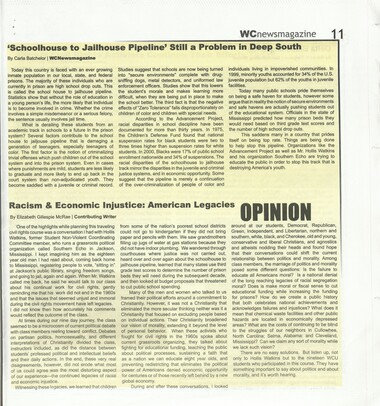

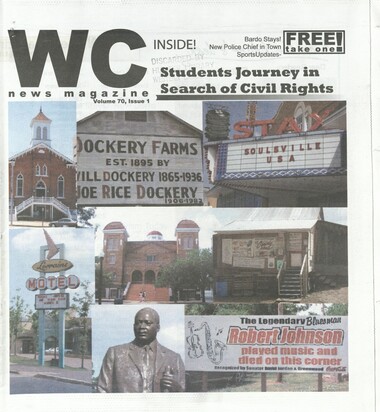
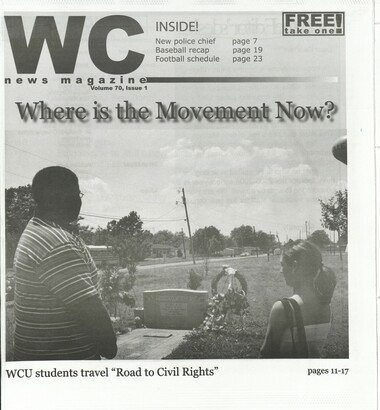
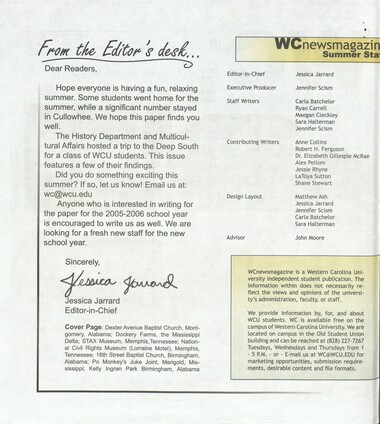
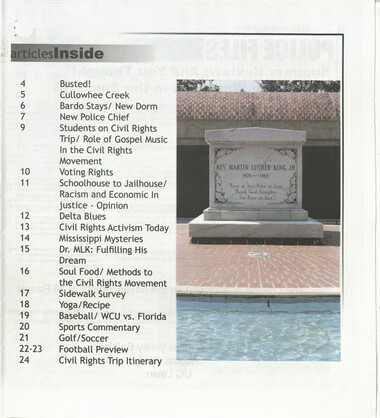

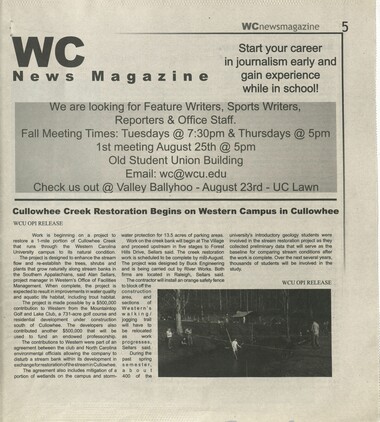
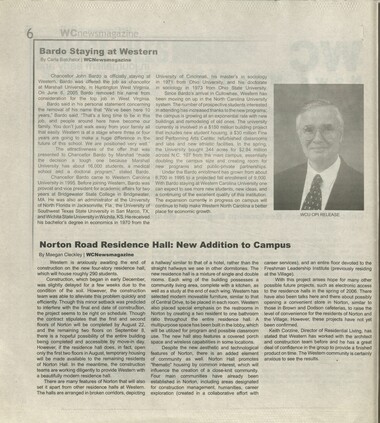

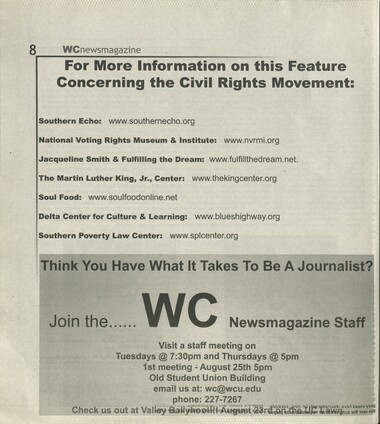
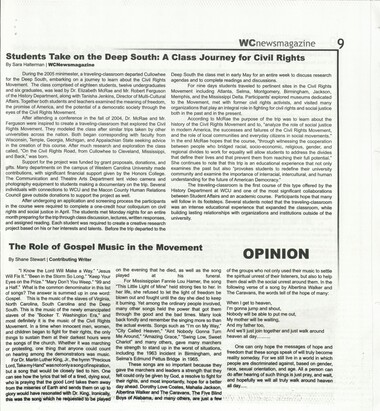
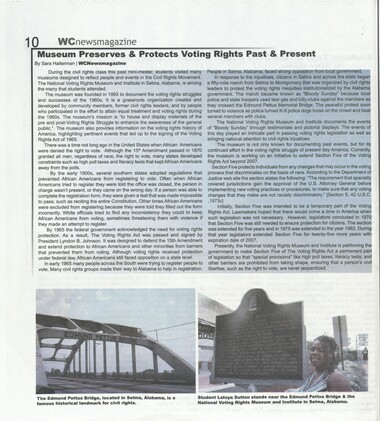
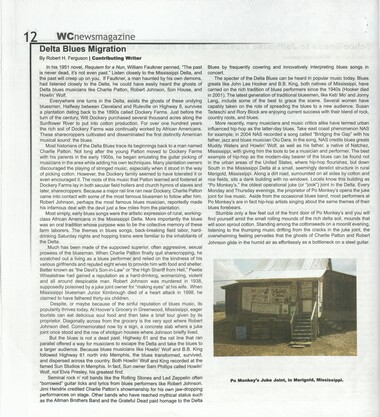
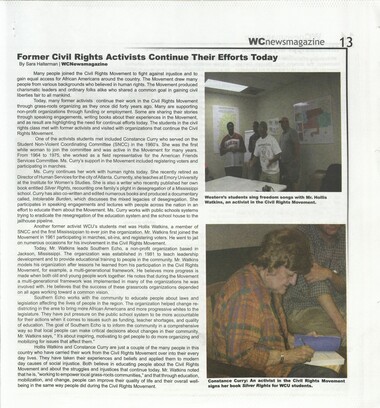
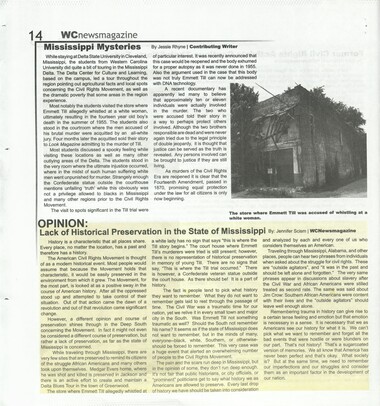
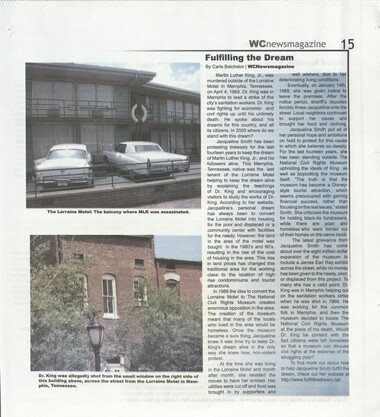
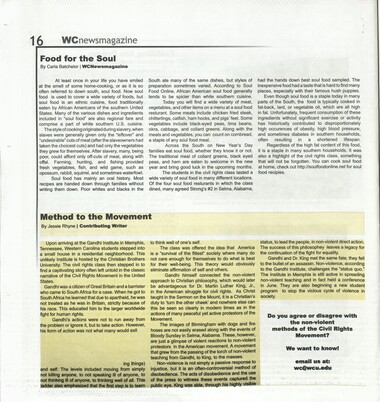
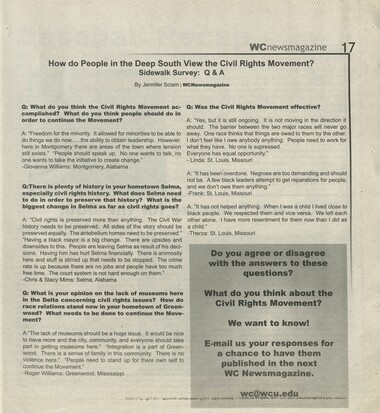
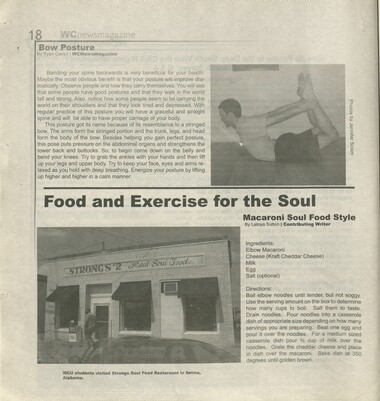
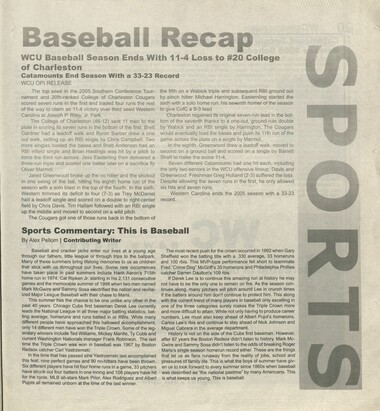
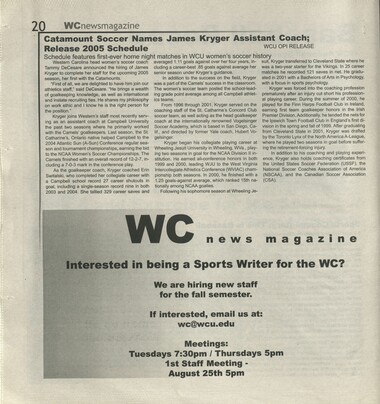
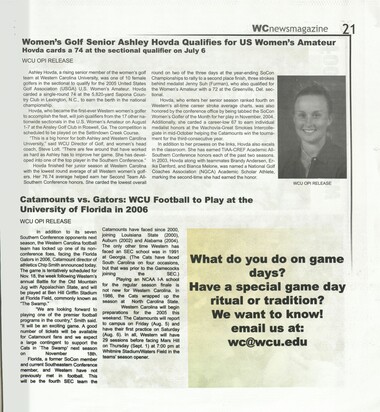
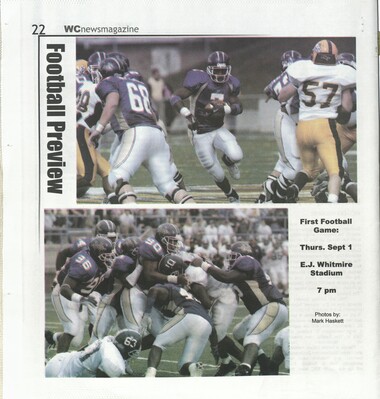
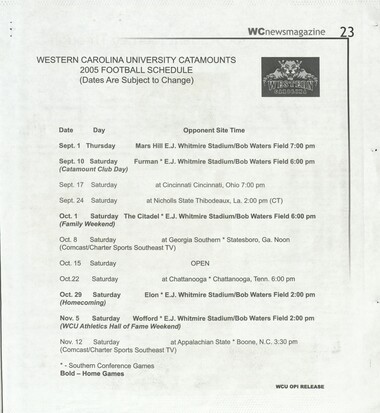
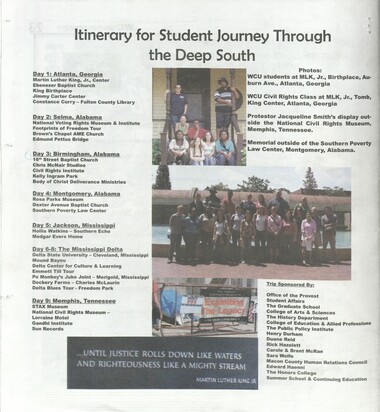
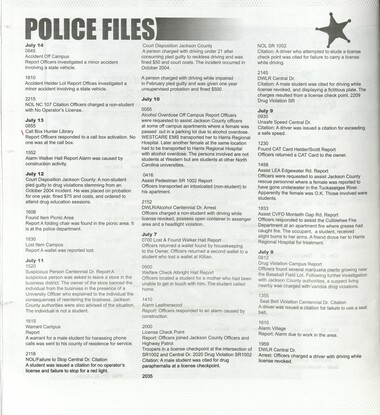
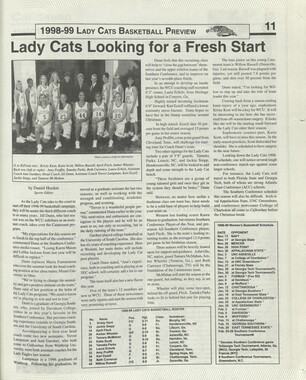
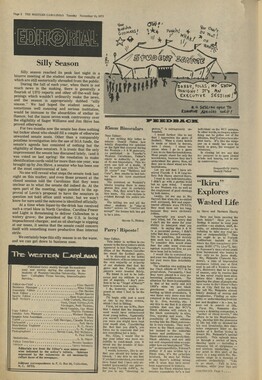

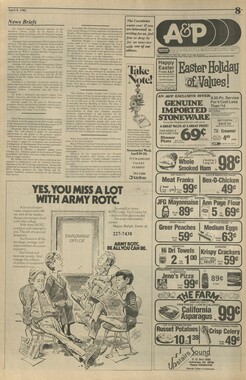

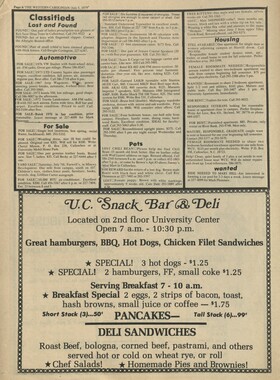
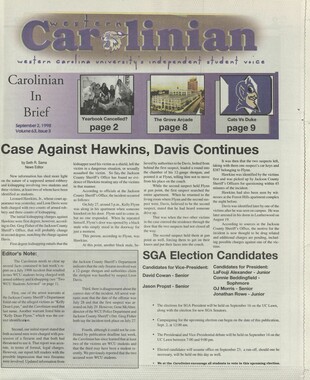

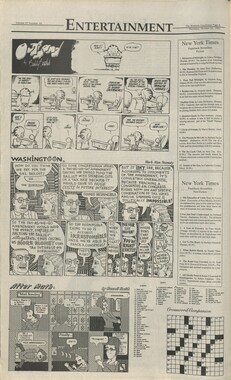
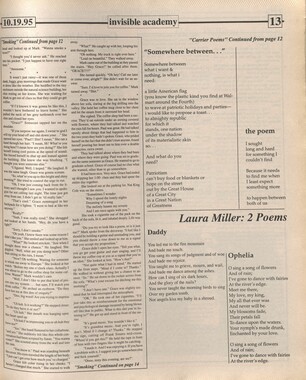
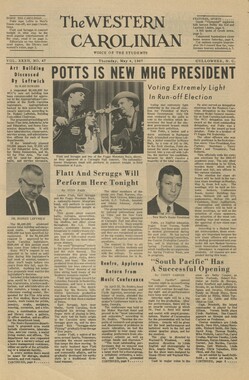
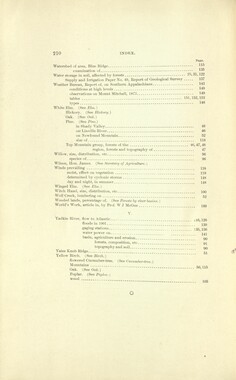
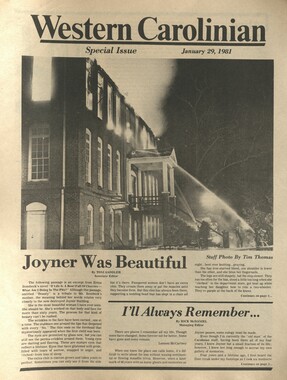

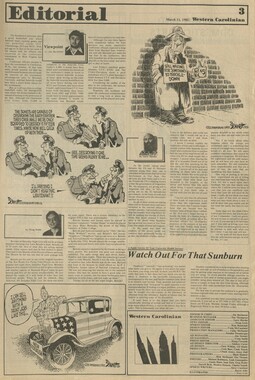
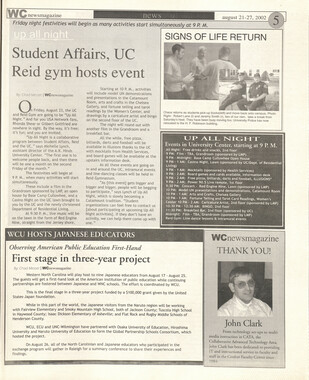
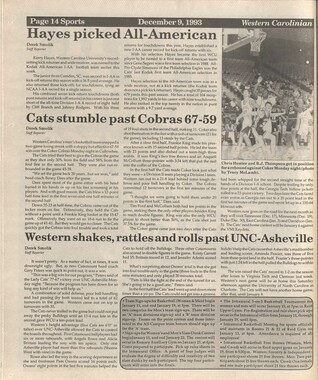
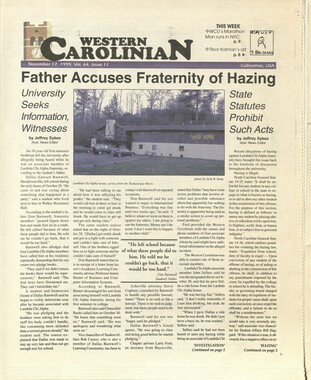
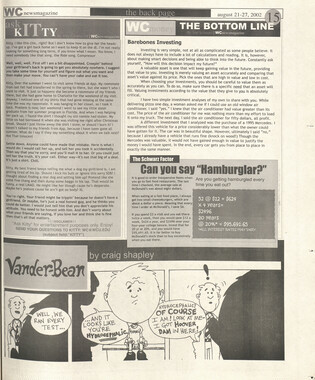
![hl_westerncarolinian_2008-09-26[10-27]_vol74_no03[04]_08.jpg](/media/w400h300/wcu_publications/hl_westerncarolinian_2008-09-26[10-27]_vol74_no03[04]_08.jpg)
